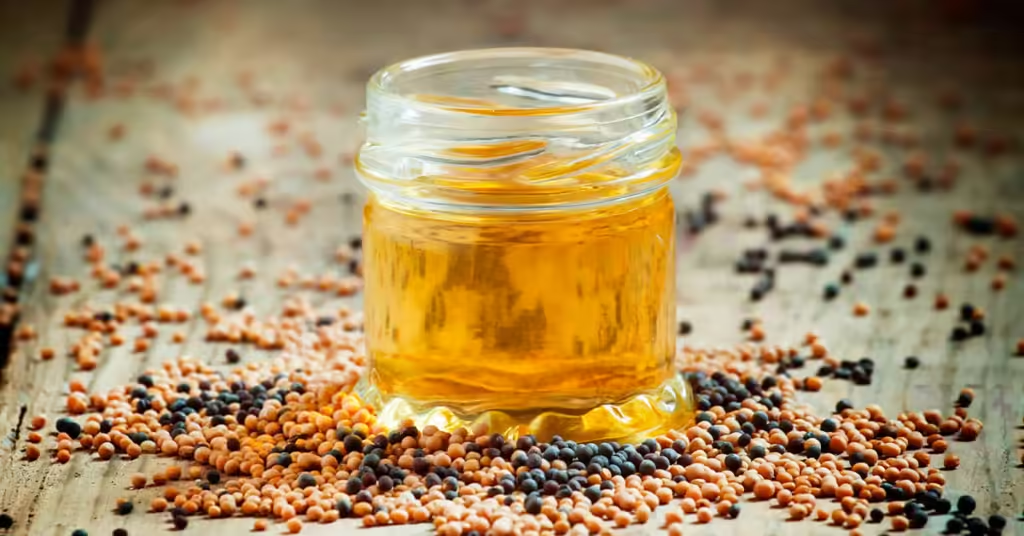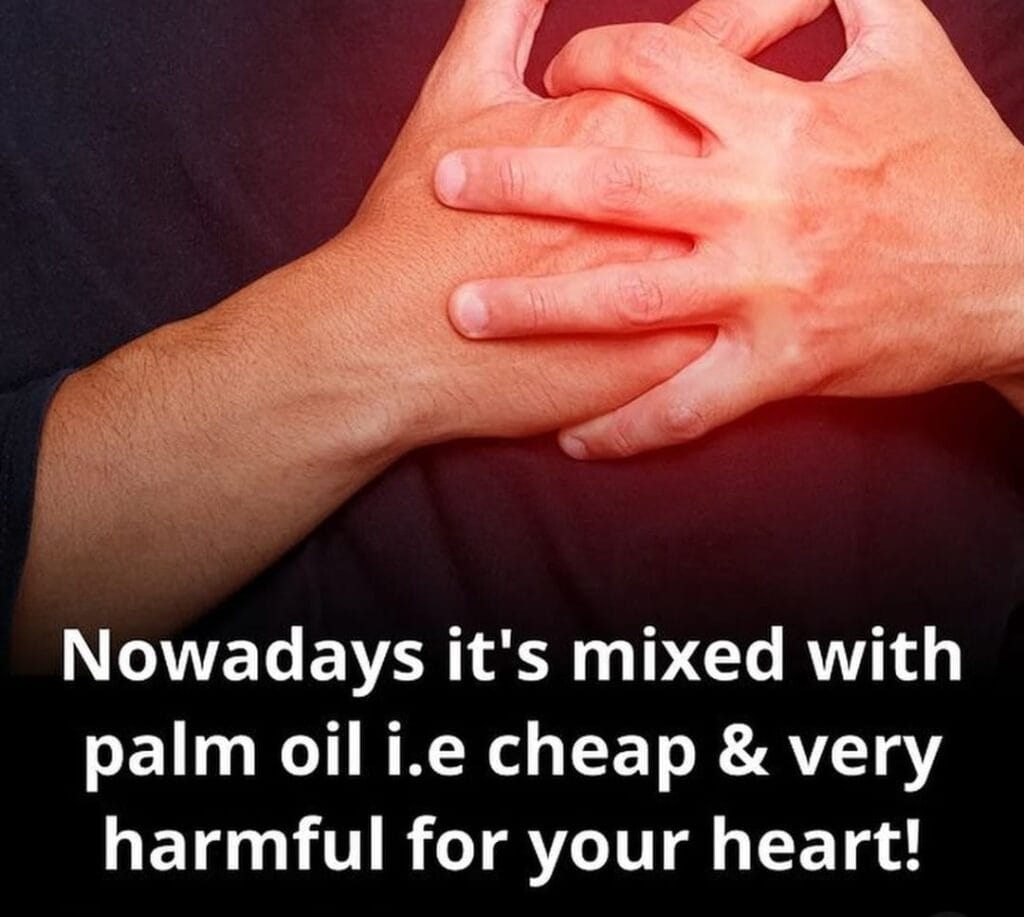
Mustard oil : When it comes to common cooking oils in Indian households, oil or Sarso ka Tel, is highly sought after due to its rich flavor and a higher smoking point which is considered suitable for Indian spices. It is also assumed to provide several health benefits. Very recent trends have brought in very disturbing issues owing to the blending of the oil with cheap and unhealthy oils. Such that most of the consumers have started strolling around the most asked question, ‘Does Sarso ka tel cause heart problems? ’ And what makes them question such milk of mustard and how do you really know if your sarso ka tel is genuine?

Why Mustard Oil Is So Popular in Indian Kitchens
Probably every Indian has ever heard something like Sarson ka tel ek purani kahavat hai, oil is an invaluable part of Indian cuisine. It is used especially in the Northern parts of the country where Indians also have a large population of their diasporas. Believed to be healthy, it has also been used externally and has been credited with beneficial effects on skin and hair health.

In the past, as far back as such traditional usages are concerned, mustard oil was also thought to alleviate swelling and was regarded as a healthy oil to include in the diet in moderation as it was considered friendly to the heart. Its very high alpha-linoleic acid content aka omega 3 fatty acid, mono unsaturated fats and other properties characteristics have made it a popular cooking oil for those who aim to cook healthy, in a heart wise manne
The Adulteration Issue: What Is Happening to Your Mustard Oil?
Recently, cases of oil adulteration have surfaced. Unethical producers are mixing mustard oil with palm oil, a cheaper alternative, to increase profits. While palm oil has its uses, it is not as heart-friendly as mustard, especially when consumed in large quantities. This mixing is not only deceptive but potentially dangerous for consumers who believe they are using a healthier cooking oil.

Palm oil, derived from the fruit of the palm tree, is rich in saturated fats. Unlike the monounsaturated fats in mustard oil, the saturated fats in palm oil can lead to elevated LDL (bad) cholesterol levels when consumed frequently, which may increase the risk of heart disease and stroke. This makes adulterated mustard oil particularly concerning for heart health.
Identifying Adulteration in Mustard Oil
As adulterated mustard oil becomes more common, it’s essential to know how to identify it. Here’s a simple at-home test:
- Pour some Rai ka Tel into a bottle or glass container and seal it.
- Place the container in the freezer for about 5 minutes.
- Observe the oil after removing it from the freezer. Pure Rai ka Tel will remain liquid or may thicken slightly, but it won’t fully freeze. If the oil contains palm oil, you will notice white, waxy deposits or a thick, solid layer at the bottom. This is the palm oil solidifying due to its high saturated fat content, which has a lower melting point than mustard oil.
This easy test can help you quickly determine whether your mustard oil has been mixed with palm oil.
What to Do If You Detect Adulteration
If your mustard oil shows signs of adulteration, you are encouraged to report it. The Indian government has established a consumer helpline specifically for such complaints:
- Call the toll-free number 1800-11-4000 to report adulterated food products, including Brassica Oil.
- Alternatively, you can file a complaint via SMS by texting “COMPLAINT” to 81300-09809.

Reporting such cases not only protects you but helps raise awareness and alerts authorities to possible sources of adulteration. When more consumers report these incidents, regulatory bodies can take action to inspect and enforce food safety standards, ultimately helping to remove adulterated products from the market.
Why Adulterated Mustard Oil Is Harmful to Heart Health
In its unadulterated form, mustard oil has a favorable lipid profile that includes omega-3 and omega-6 fatty acids to promote heart health by decreasing inflammation and cholesterol levels. Yet, the addition of harmful adulterants in mustard oil strains these advantages by introducing unhealthy fat which is more saturated and poses cardiovascular risks.
Research indicates that regular use of palm oil particularly as a substitute for better fats is likely to cause an increase in cholesterol and may eventually cause blockage of the arteries. This is especially harmful for individuals with any predisposed risk for heart disease or hypertension.
Tips for Buying Pure Mustard Oil
To minimize the risk of purchasing adulterated mustard oil, consider these tips:
- Choose trusted brands: Reputable brands are more likely to follow regulatory standards, reducing the chance of adulteration.
- Look for FSSAI certification: The Food Safety and Standards Authority of India (FSSAI) monitors and certifies food products. Check for the FSSAI mark to ensure quality.
- Read labels carefully: Some brands may legally mix other oils with mustard oil. If the label lists any other oils or “vegetable oil blend,” you may want to avoid that product.
- Purchase from certified retailers: Buying from reliable retailers, especially in-store or online grocery brands with strict quality checks, can help ensure you get pure mustard oil.
Share This Information and Spread Awareness
Most cooking oils have recently been on the rise in adulteration, and this is a major problem to every person especially to the ones who use it for cooking on daily basis. Given the situation, one can enhance their wellbeing as well as avoid Cock and Bull products by being vigilant and carrying out simple tests. This approach should also be done to family members and people around, which will ensure that there is more caution when people are buying mustard oil.

To conclude, while pure mustard oil stands as a good cooking oil, the persistent habit of ingrating it with palm oil is highly dangerous. To eat your salad drenched in mustard oil that is heart friendly quality, hesitate for any mustard oil quality, do a simple freezer test if hesitating, and contact consumer division boy scouts about any whistle blowing on adulteration. Thanks to these, one can enjoy the wonders of mustard oil without compromising on their health with its adulteration.
Canola oil is toxic sludge, here's how it's made 👇
— Paul Saladino, MD (@paulsaladinomd) January 6, 2023
Note – This video was flagged as " misinformation"on Instagram
My response coming soon… pic.twitter.com/g00ylylFeW



